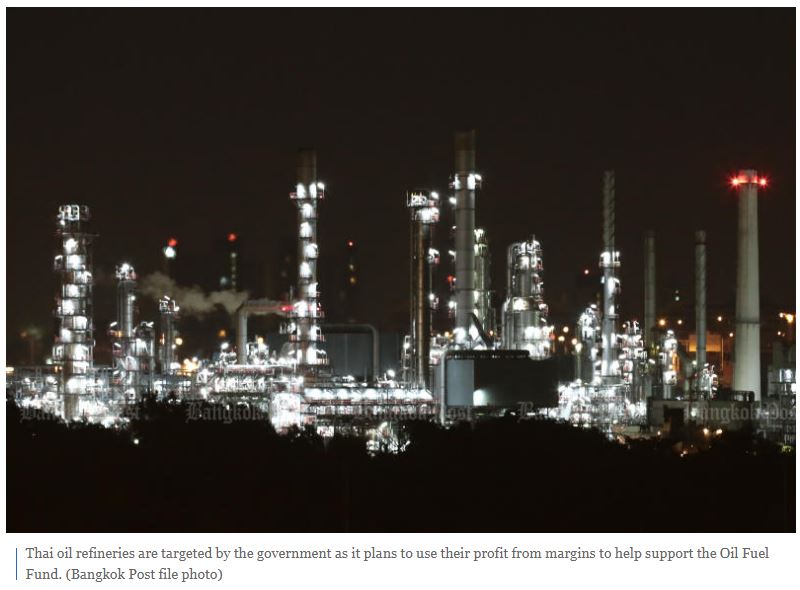Thailand: Controversial fuel windfall tax facing delay
The government’s controversial plan to collect a windfall tax from oil refineries to support the dwindling Oil Fuel Fund may face a one-month delay because of legal complications in charging the new tax, says a source from a refinery company.
Six local oil refinery companies are discussing the plan being pushed by energy policymakers to fund the Oil Fuel Fund, which has run up losses exceeding 100 billion baht by subsidising diesel and liquefied petroleum gas.
The tax is aimed to be charged on gross refinery margin (GRM). It is viewed as being too high, but this accusation was rejected by oil companies which also questioned the tax measure to trim their profits.
GRM, the difference between prices of crude oil and refined oil, refers to costs added to the crude oil price during the refining process. GRM eventually becomes part of the retail oil price that drivers pay at petrol stations.
“To push ahead with the tax, the government needs to back it with laws or they will face criticism or even lawsuits in the future,” said the source, who spoke on condition of anonymity.
The source said it may take time to have a right law or regulation authorising the government to collect the tax, so it will not come into effect this month.
Authorities are studying whether they can impose a tax on the GRM but will focus only on windfall profit added to GRM after the war between Russia and Ukraine broke out in late February.
Previously the GRM was only two baht a litre on average, but after the war started, it rose to 3.27 baht a litre, according to statistics compiled by the Energy Policy and Planning Office.
The additional GRM of 1.27 baht, viewed as a windfall profit, is what authorities propose to tax.
However, during a talk with six oil refineries, they insisted average GRM stood at only 1.19 baht a litre in the first quarter of this year, permanent energy secretary Kulit Sombatsiri said earlier.
A source at the Energy Ministry said the increasing burden on the Oil Fuel Fund may cause the government to consider further limiting its subsidy for the diesel price.
“The subsidy is currently 11 baht a litre to cap the diesel price at below 35 baht a litre, compared with the market price of 45 baht,” the source said, adding the new capped price will be over 35 baht a litre.
Auttapol Rerkpiboon, president and chief executive of PTT Plc, said he believes global oil prices, currently exceeding $100 a barrel, will decrease next year as Opec and its allies are expected to increase oil supply by 3-4 million barrels, which is close to the amount of Russian oil now facing a ban as part of sanctions by the US and its allies.
Source: https://www.bangkokpost.com/business/2337553/controversial-fuel-windfall-tax-facing-delay


 English
English




